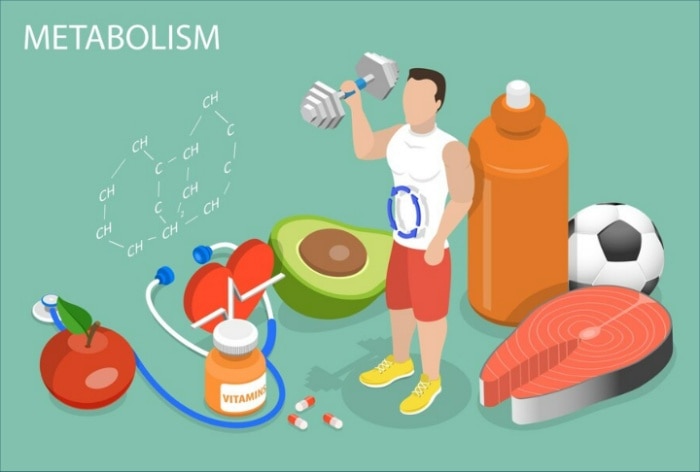A poor weight loss process can be due to several reasons, one of them being a slow metabolism. Read on to find out which daily habits can cause your metabolism to slow down.
Metabolism is an essential bodily process to convert food into energy. This also affects the weight loss regime. Daily lifestyle can be one of the main reasons that affect the metabolic rate and slow down weight loss. Sometimes we make mistakes and we don’t even realize how they can affect our body.
Weight Loss: 10 Superfoods to Boost Metabolism and Reduce Body Fat 
5 Reasons Why Your Metabolism Is Slowing Down
- Poor sleep quality: Getting a minimum of 7-8 hours of sleep is a fundamental aspect of lifestyle that is often underestimated and not prioritized. Getting fewer hours of sleep and poor quality sleep lowers metabolism and increases the chances of weight gain. Disruption of the body’s circadian rhythms affects health. Insufficient rest can lead to weight gain and a slow metabolism, making it difficult to burn calories effectively.
- Skipping meals: Skipping a meal during the day should not be a regular practice. It can also be one of the reasons that can cause the metabolism to slow down, as the body goes into conservation mode to conserve energy. Regular meals help maintain stable energy levels and support metabolic processes.
- Sedentary lifestyle: This is one of the main causes of several health problems. The busy world in which most of us are glued to the screen and our seats is one of the main causes of high cholesterol, weight gain, and other problems. Lack of physical activity can slow down the metabolism. Regular exercise, especially strength training, helps build muscle mass, which burns more calories at rest. Incorporating movement into your daily routine is crucial for metabolic health.
- High levels of stressChronic stress can lead to elevated cortisol levels, which can contribute to weight gain and a slower metabolism. Finding healthy ways to manage stress, such as meditation, yoga, or hobbies, can help keep your metabolism running optimally.
- Poor hydration: Dehydration can negatively affect your metabolic rate. Drinking enough water is essential for several bodily functions, including digestion and nutrient absorption. Staying hydrated can help your metabolism run smoothly.
- Low protein intake:A low-protein diet can slow down metabolism, as protein has a greater thermic effect than fats and carbohydrates. Including an adequate amount of protein in meals can help increase energy expenditure and promote muscle maintenance.
Being aware of these habits is essential to maintaining a healthy metabolism. By making changes such as eating regularly, getting enough sleep, staying active, managing stress, staying hydrated, and increasing your protein intake, you can contribute to your metabolic health and improve your overall well-being.
